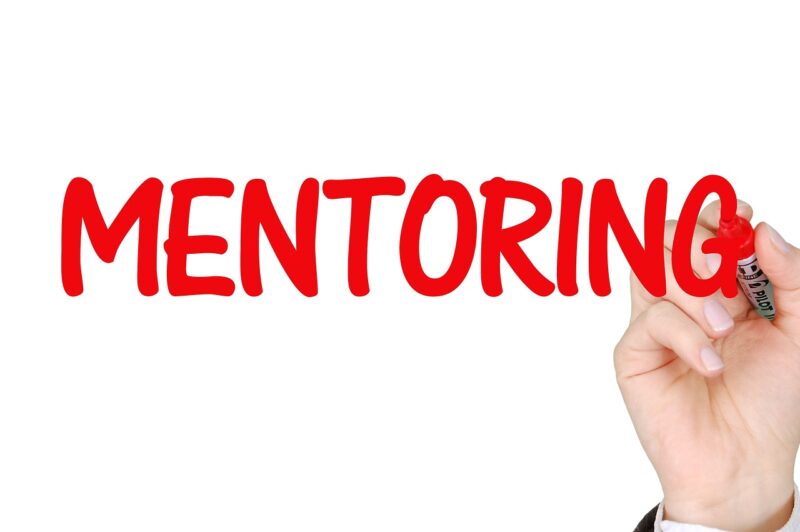
In today’s fast-paced and rapidly changing job market, having a mentor can be one of the most impactful advantages that professionals can have. A mentor not only provides guidance but also opens doors, shares their networks, and helps avoid potential pitfalls along your career journey. But how do you find the right mentor? In this article, we’ll delve into the key steps and strategies for successfully identifying and establishing a mentoring relationship that can propel your career forward.
1. Understand What You Want from a Mentor
Before searching for a mentor, it’s essential to reflect on what you aim to achieve from the mentorship. Ask yourself questions such as:
- What are my career goals?
- What specific areas do I want to improve or learn more about?
- Do I prefer a mentor from my industry, or can someone from a different field provide valuable insights?
- How frequently do I expect to meet with my mentor?
Clear goals will help you articulate your needs when reaching out to potential mentors and facilitate a more focused mentorship experience.
2. Identify Potential Mentors
The next step is to identify individuals who could serve as effective mentors. Here are some approaches to consider:
- Leverage Your Network: Start with your existing connections. This could include supervisors, colleagues, or alumni from your school. Networking events or industry conferences can also serve as excellent opportunities to meet potential mentors.
- Look for Thought Leaders: Identify leaders in your field through publications, social media platforms like LinkedIn, or professional associations. Engaging with their content can create a connection and demonstrate your interest in their expertise.
- Consider Different Backgrounds: Don’t limit yourself to traditional mentors. People from diverse backgrounds or industries can offer unique perspectives that may complement your career goals.
Remember, the best mentors are those who align with your career aspirations and values.
3. Approach Your Potential Mentor
Once you have identified potential mentors, the next step is to reach out. Here are some effective strategies for making contact:
- Craft a Thoughtful Message: When reaching out, personalize your message. Briefly introduce yourself and mention what you admire about their work. Be specific about why you think they would be a great mentor for you.
- Request a Meeting: Suggest a brief meeting or coffee chat (virtual or in-person). Emphasize that you value their time and that any advice or insights they provide would be appreciated.
- Be Prepared for Rejection: Not everyone will respond positively, and that’s okay. Keep looking for the right fit until you find someone who is open to guiding you.
A respectful and professional approach increases your chances of establishing a productive mentoring relationship.
4. Establish a Clear and Open Dialogue
Once a potential mentor agrees to meet with you, it’s crucial to establish a clear and open line of communication. Here are some tips:
- Set Expectations Early: Discuss your goals and what you hope to achieve through the mentoring process. This helps both parties remain aligned throughout the relationship.
- Be Open to Feedback: A mentoring relationship thrives on honest communication. Be receptive to constructive criticism and suggestions that your mentor provides, as it contributes to your professional growth.
- Follow Up Regularly: After your meetings, send a thank-you note or email summarizing key takeaways. Regular follow-ups show appreciation and reinforce the commitment to the relationship.
Maintaining a structured and transparent dialogue enhances the effectiveness of the mentoring experience.
5. Nurture the Relationship
Mentorship should be a mutually beneficial relationship. Here’s how to nurture this bond:
- Express Gratitude: Always express appreciation for the time and wisdom shared by your mentor. Acknowledging their efforts encourages them to continue supporting you.
- Share Your Progress: Keep your mentor updated on your achievements and challenges. This not only showcases your growth but also allows them to provide relevant advice based on your current situation.
- Give Back: As you progress in your career, look for ways to support your mentor or engage with others who are seeking guidance. Sharing your knowledge and helping others fosters a culture of mentorship.
A nurturing approach helps to solidify a cherished and productive mentorship experience.
6. Know When to Transition or End the Relationship
As you develop in your career, there may come a time when the mentorship dynamic needs to evolve or come to an end. Recognizing this is important for both you and your mentor:
- Assess Your Needs: Evaluate whether the mentorship is still aligned with your goals. If you feel that you’ve outgrown the relationship, it might be time to transition to a different mentor.
- Discuss Changes Openly: If you believe the mentorship should transition, communicate this with your mentor openly. A good mentor will understand your need for growth and new challenges.
- Part on Good Terms: Whether the relationship has run its natural course or you need to move on for another opportunity, express gratitude and appreciation for the mentorship experience you shared.
Endings can be a natural part of career progression, and respecting that transformation keeps avenues for future connections open.
Conclusion
Finding a mentor to guide your career journey is a powerful step toward achieving professional success. By understanding your needs, identifying the right individuals, and establishing meaningful connections, you can create a partnership that benefits both parties. Remember, mentorship is not just about guidance; it’s about building lasting relationships, sharing insights, and augmenting your career path with invaluable knowledge from experienced professionals. Now, take the first step in exploring mentorship opportunities to enhance your career trajectory today.







